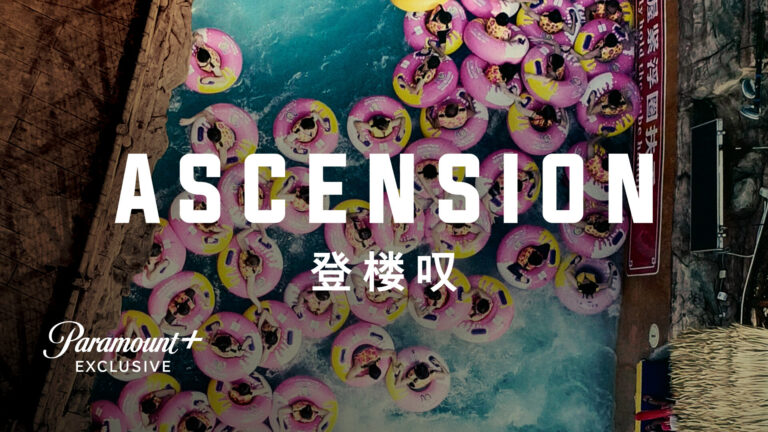Oscar Nominations:
Documentary Feature
In Ascension, the documentary on Chinese culture and economy, there is a scene near the end where a beautiful Chinese woman is being photographed on the well-manicured grounds of an estate somewhere in China. The model complains at one point of how she’s going to suffer a heat stroke, gathers her belongings – including a large straw hat – and jaunts off the lawn in search of shade while the photographer compliments how great her legs look. Meanwhile, a gardener squats on the same lawn and in the same heat, working diligently digging up weeds. He does not retreat into the shade, but continues working. Carlos Aguilar (RogerEbert.com) remarks, about the same scene “The jarring contrast of the two realities contained within the same frame illustrates an abominable economic gap.” (There are distinct parallels between some of these scenes and last year’s Best Picture Winner Parasite.)
He later writes that Ascension “…forces us to grapple with how China’s cutting-edge technology and determined competitiveness coexist with its unique worldview.” Beatrice Loayza (New York Times) wrote that director Jessica Kingdon’s “hypnotizing documentary…calls attention to the beauty, absurdity, and horror of Chinese capitalism with symphonic panache.” Yes, Ascension is manifestly concerned with how the Chinese system works today, and it is a fascinating look at a culture that is largely unknown to American audiences. For that reason, alone, this film is worth a viewing. But I took away a very different message – one that might be a bit more disturbing.
I’ll get back to that, but first let’s talk about the qualities of this documentary. Ascension is a unique movie, using a strictly observational style of presentation. Unlike most documentaries, there are no “talking heads” in this film – there is no-one telling you what you are viewing or how you should look at it. Instead Chinese-American Jessica Kingdon (and her real-life partner Nathan Truesdell) secured access to 53 different work locations across a wide-range of occupations in contemporary China. Once into a site, they simply positioned a camera – presumably on a tripod of some sort – and just turned it on to record whatever was in front of it. She then edited the film down to the feature documentary you see here. Music was specially composed for the film by Dan Deacon, using instruments and sounds, that, in one way or another, were derivative from the scenes being shot. The score is highly disconcerting and jarring in some spots and, because there is so little dialogue in the movie itself, the music becomes a major component of the experience.
Just an hour and 37 minutes long, the movie is a must-see for documentary lovers, although I’m not sure I would recommend it for general audiences. For one thing, it is difficult to find. It is streaming only on Paramount+ and most people don’t subscribe to that service, although you can rent it from multiple locations (see below). And, apparently, its limited availability has also limited its appeal. In audience rankings, it is the fourth rated documentary (out of the five this year), although it has only been rated by a little over three thousand viewers, which is a pretty small base. Among critics, viewership is hardly any better with Metacritic ranking Ascension at the bottom of all five of this year’s Oscar documentaries and that is based on only thirteen reviews. (For the other documentaries already reviewed see Flee and Summer of Soul.) In short, Ascension is a film with a limited audience.
The movie is roughly organized into three basic sections, corresponding to three class distinctions in Chinese society. The first section deals with the basic worker, young (under 38), and often seeking their first job. The movie opens with a job market where jobs are being sold to eager buyers who are then bussed – possibly to different towns – to live in dorms on factory property. The camera then records workers at different jobs discussing topics like how they have to buy their bosses’ lunch. In the middle section, the camera focuses on how the middle class is groomed to consume and to market consumption. In one class, which seems very much like an American pyramid scheme, recent graduates talk about how they were motivated to earn millions!
The final section doesn’t deal with the rich so much as the servants of the rich. We observe different training schools for services to the rich, one for butlers and maids, another for bodyguards. There are some interesting conversations there, especially about how many of the rich value and are able to get a western education. Though we don’t actually see how the upper classes are groomed for their success, we learn much from how their servants are trained to treat them, and how they expect to be treated in return.
Multiple times during Ascension comments are made about Chinese capitalism. And while the movie is indeed filmed in China, I couldn’t help but think how similar all this messaging is to what we are told here in the U.S. A president of a cosmetic firm talks about how the Chinese economic system inevitably produces inequalities of wealth. But he is not lamenting class distinctions. Instead he argues that intelligence and hard work are the keys to making it in this system – that’s just a variation on our own Horatio Alger myth. In another section, a trainer, in establishing on-line brands, tells the class that knowledge by itself is useless unless you can “monetize it”. In other words, the value of everything lies in how much economic worth it generates – that is just a different way of stating, in American, that everything has its price.
China’s relentless economic march forward does indeed constitute a challenge to the U.S. But it is not because their system is radically different than ours and, therefore, poses some existential threat. On the contrary, since the 1990s, China has fully embraced the capitalist model. If they pose some kind of threat to us it is only because they are starting their capitalist venture in the Information Age, quickly leapfrogging over the Industrial Era. They already have the advantage of our experience and, though late to the game, they come to it with distinct advantages. China’s threat to the western world is not that they will replace our system with a different one. Rather they will possibly succeed and even beat us at our own game – they will play the capitalism game better than we do!
Is what’s described in this movie so much different than our own history? No, we don’t have factory dormitories and people do not work ten hour days, but we used to, and it was only a couple of generations in the past. And much of the middle of the movie, focusing on consumerism and materialism reminds me of America in the 50s and 60s with our own middle class ascension. And that final scene with the luxurious model being photographed on a lushly landscaped pavilion could just as easily have been filmed right here, right down to the gardener weeding in the heat (although here, he would likely be a Mexican immigrant). What, really, makes this supposedly alien system so different from our own? I think very little.
(There is one feature of Ascension that I couldn’t figure out – and that was its fascination with water. It seems water appears in some version, in nearly every scene. There is water in the industrial processes, there is a factory making bottled water, there is a swimming pool, beach scenes, and cargo ships on ocean waterways. In the scene with the gardener and the model, sprinklers are watering the lawn. I searched for some meaningful connection between either the movie or China and water, and I couldn’t find anything. If any reader has any thoughts, please add a comment – I’m intrigued.)
Ascension isn’t a movie for everyone. Joan (my wife watches all the Oscar movies with me) couldn’t understand the point of the film and actually got up and left me alone half-way through. Because of its strictly observational style, it is not an easy film to interpret. But I think the message about China’s adoption of extreme capitalism is pretty clear and understanding that might lead to a better understanding of what our world’s challenges might be over the next decade or so. And, really, the enemy is us – this is the world WE created! (3.5*)
Stream on Paramount+ or rent from Apple +, Prime, Vudu and other platforms.



1 thought on “Ascension”
As Michael mentioned, I had not heard of this film. But his description makes me add it to my Must See list. It sounds very informative & likely visually beautiful. Sometimes it is easier to swallow a vision of our life if it seems to be slightly foreign, so I like the idea of China being a somewhat different mirror for us.